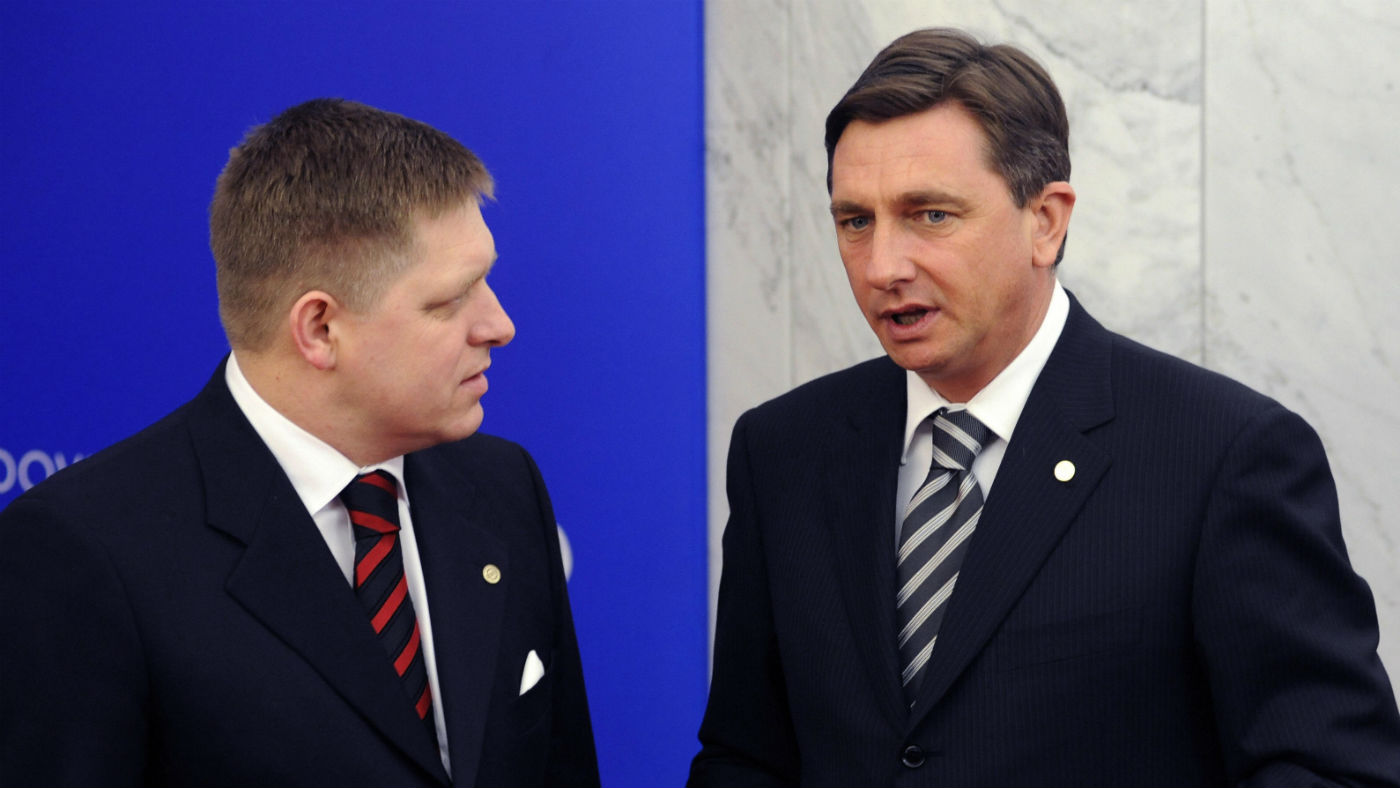Central Europe rocked by double resignation
Departure of Europhile Slovak and Slovenian leaders could spell trouble for the EU

A free daily email with the biggest news stories of the day – and the best features from TheWeek.com
You are now subscribed
Your newsletter sign-up was successful
The resignation of Slovakia’s prime minister just one day after his Slovenian counterpart stood down looks set to destabilise central Europe and could shift the balance of power against the EU.
Slovak Prime Minister, Robert Fico, is to resign amid a scandal over the murder of journalist Jan Kuciak, who was investigating government corruption and links to the Italian mafia when he was killed. His fiancee was also murdered during the attack on their home last month.
The BBC says the killings have gripped Slovakia, “leading to calls for an investigation and anti-government protests in Bratislava on Friday which were thought to be the largest in the country since the fall of communism in 1989”.
The Week
Escape your echo chamber. Get the facts behind the news, plus analysis from multiple perspectives.

Sign up for The Week's Free Newsletters
From our morning news briefing to a weekly Good News Newsletter, get the best of The Week delivered directly to your inbox.
From our morning news briefing to a weekly Good News Newsletter, get the best of The Week delivered directly to your inbox.
The growing scandal has already brought down interior minister Robert Kalinak, who resigned on Tuesday.
Earlier this month, Slovakia’s President Andrej Kiska called for a “radical reconstruction” of the government or fresh elections, after all seven suspects arrested in connection with the murders, including one man who had done business deals with officials close to Fico, were released without charge.
The EU has urged Slovakia swiftly to investigate the murders which “raised fresh concern about media freedom and corruption both in Slovakia and more widely in Europe”, says The Guardian.
The murders came after the assassination last October of the investigative journalist Daphne Caruana Galizia, who had denounced corruption in Malta.
A free daily email with the biggest news stories of the day – and the best features from TheWeek.com
“How far Fico’s exit as prime minister can calm public pressure is still to be seen,” says RTE. There are fears that the political fallout from the scandal could bring down the centre-left coalition and usher in a new more Eurosceptic government.
Fico, who has been in power for much of the past 12 years, has called Slovakia a “pro-European island” in central Europe and has sought to stand out from largely eurosceptic leaders in the region.
However, the timing of his resignation could not be worse for the EU.
On Wednesday, Slovenian Prime Minister, Miro Cerar, another Europhile liberal, announced that he was to step down after the country’s top court annulled last year’s referendum on a key government-backed railway project and ordered a new vote.
Cerar had faced the possibility of impeachment last year when he was accused of seeking to interfere with the judiciary after voicing support for a Syrian asylum seeker.
As in much of central Europe, immigration is the central political issue in Slovenia, and it is feared that, with Cerar gone, opposition rightwing Eurosceptics could make big gains in the elections in May.
Although unrelated, the loss of two of central Europe’s most pro-European leaders is an ominous sign for the EU, especially amid a rise in support across the continent for the far-right and a growing threat from Russia.
-
 Rubio boosts Orbán ahead of Hungary election
Rubio boosts Orbán ahead of Hungary electionSpeed Read Far-right nationalist Prime Minister Viktor Orbán is facing a tough re-election fight after many years in power
-
 Epstein files topple law CEO, roil UK government
Epstein files topple law CEO, roil UK governmentSpeed Read Peter Mandelson, Britain’s former ambassador to the US, is caught up in the scandal
-
 Iran and US prepare to meet after skirmishes
Iran and US prepare to meet after skirmishesSpeed Read The incident comes amid heightened tensions in the Middle East
-
 Grok in the crosshairs as EU launches deepfake porn probe
Grok in the crosshairs as EU launches deepfake porn probeIN THE SPOTLIGHT The European Union has officially begun investigating Elon Musk’s proprietary AI, as regulators zero in on Grok’s porn problem and its impact continent-wide
-
 Israel retrieves final hostage’s body from Gaza
Israel retrieves final hostage’s body from GazaSpeed Read The 24-year-old police officer was killed during the initial Hamas attack
-
 China’s Xi targets top general in growing purge
China’s Xi targets top general in growing purgeSpeed Read Zhang Youxia is being investigated over ‘grave violations’ of the law
-
 Panama and Canada are negotiating over a crucial copper mine
Panama and Canada are negotiating over a crucial copper mineIn the Spotlight Panama is set to make a final decision on the mine this summer
-
 Europe moves troops to Greenland as Trump fixates
Europe moves troops to Greenland as Trump fixatesSpeed Read Foreign ministers of Greenland and Denmark met at the White House yesterday


